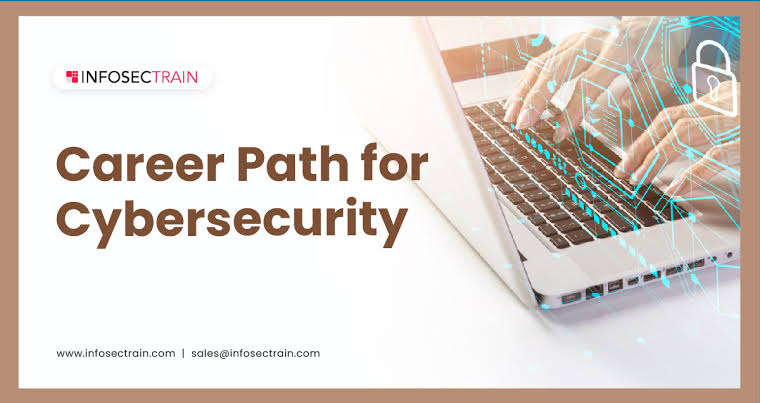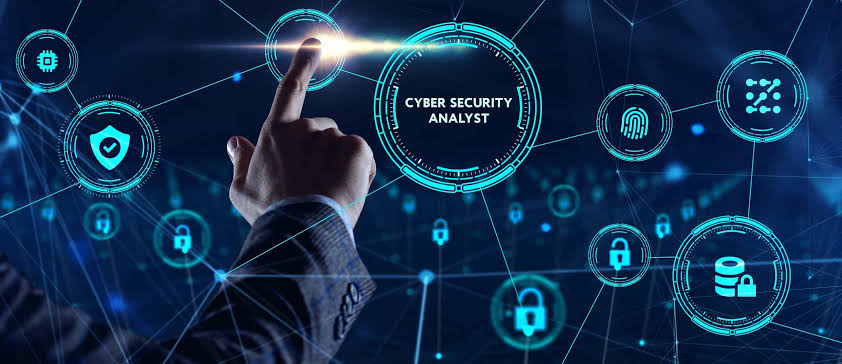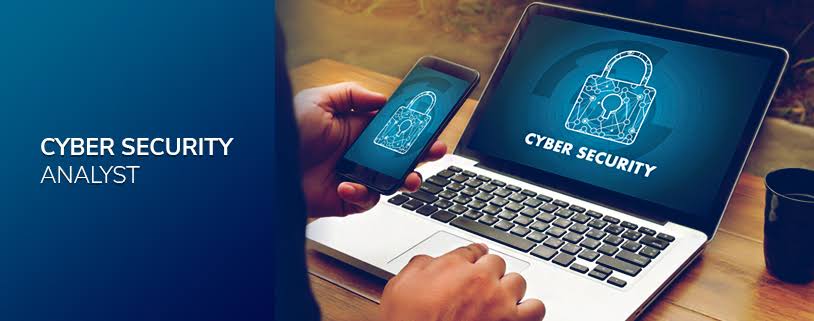Setting your foot strongly for a great career in Cybersecurity
Growing Demand: With the increasing reliance on technology and the digitalization of various industries, the demand for cybersecurity professionals is rapidly expanding.
2.Job Security: Cybersecurity professionals enjoy a high level of job security due to the continuous need for protection against cyber attacks.
3.Challenging and Dynamic Work: Cybersecurity is a field that presents constant challenges and ever-evolving threats.
4.Impact and Contribution: Working in cybersecurity allows you to make a significant impact by protecting organizations, individuals, and critical infrastructure from cyber threats.
5.Lucrative Salaries: The demand for cybersecurity professionals often exceeds the supply, leading to competitive salaries and attractive compensation packages.
6.Diverse Career Paths: Cybersecurity offers a wide range of career paths and specializations.
7.Continuous Learning and Professional Development: Cybersecurity is a field that demands constant learning and skill development.
Junior Analyst Course Curriculum
Course duration: 3 months (can be varied according to schedule)
Course details:
Month 1 (Introductory Concepts)
Week 1: Introduction to Cybersecurity as a career- Overview of the course objectives and syllabus Understanding the importance of cybersecurity in today's digital landscape
- Introduction to common cybersecurity terminology and concepts
Weekly Hands-on practical session
- Identifying common online threats: malware, phishing etc.
- Understanding the motivations and goals of cyber attackers
- Analyzing real-world examples of cyber attacks
Weekly Hands-on practical session
- Introduction to social engineering techniques and tactics
- Understanding the psychological aspects of cybersecurity
- Social Engineering attack and social media
- Exploring strategies for user awareness and education
Weekly Hands-on practical session
- Secure online communication: Using encryption and secure messaging apps.
- Safe social networking: Guidelines for using social media platforms safely.
- Online gaming security: Protecting personal information while gaming online.
- Mobile device security: Securing smartphones and tablets against cyber threats.
- Incident reporting and seeking help: Knowing when and how to report cyber incidents and seeking assistance when needed.
Weekly Hands-on practical session
Monthly Bonus: Building of social engineering attack system
"A career in cybersecurity offers a chance to be on the front lines of the digital battle, protecting the world from cyber threats and making a difference in the lives of individuals and organizations"
-Anonymous
Month 2 (Information Security Techniques)
Week 1: Introduction to information security- Overview of the course objectives
- Importance of information security in today's digital world
- Basic terminology and concepts in information security
Weekly Hands-on practical session
- Introduction to information security principles and best practices
- Understanding the CIA triad: Confidentiality, Integrity, and Availability
- Exploring different layers of information security: physical, technical, and administrative
- Security goals and objectives
- Common security threats and vulnerabilities
Weekly Hands-on practical session
- Introduction to cryptographic concepts and algorithms
- Understanding encryption, decryption, and digital signatures
- Exploring common cryptographic protocols and their applications
Weekly Hands-on practical session
- Principles of access control
- Authentication methods and techniques
- Access control systems, surveillance, and monitoring
- Environmental controls and protection measures
- Authorization and access control models
Monthly Bonus: A course on programming and building of a programming project
Month 3 (Cybersecurity Career)

- Securing Phones, Computers and Tablets
- Creating strong and unique passwords: Importance of password security and best practices.
- Safe internet browsing: Recognizing and avoiding suspicious links, websites and files.
- System security and Hardening
Weekly Hands-on practical session
- Understand the role of security operations centers (SOC) in cybersecurity
- Introduce security incident and event management (SIEM) systems
- Learn about log analysis, threat hunting, and incident response in a SOC
- Discuss security monitoring best practices
- Case studies on effective security monitoring and incident response
Weekly Hands-on practical session on some SOC tools
- Understand the importance of data privacy and compliance in cybersecurity
- Discuss data protection laws and regulations, such as GDPR and CCPA
- Explore privacy-enhancing technologies and techniques
- Discuss compliance frameworks, such as ISO 27001 and NIST Cybersecurity Framework
- Real-world examples of data breaches and their impact on privacy
- Learn about threat intelligence and its role in cybersecurity
- Understand the different types of threat actors and their motivations
- Explore sources of threat intelligence and how to leverage them
- Introduce threat hunting techniques and tools
- Analyze real-world cyber threats and incidents
Weekly Hands-on practical session
- Introduction to the basics of cloud computing and its security challenges
- Introduction to Cloud service providers
- Understand the shared responsibility model in cloud security
-
Vulnerability Assessment/Pentesting
- Conducting vulnerability assessments using different tools
- Explore penetration testing methodologies and tools
- Reporting and remediation of vulnerabilities
Weekly Hands-on practical session
On weekly basis we incorporate the following Career Soft Skillsinto our lectures
Bonus: Free Cybersecurity tools and resources
👉 Cost of programme: $150
Why you should buy our courses:
1.Physical Classes: Classes are held physically in all locations worldwide where we have our tutors.
2.One on One Learning: Our classes are one on one with the students thus catering for everyone's individual needs.
3.Flexible Class Scheduling: We work with our students to schedule classes with respect to their time and personal schedule. Thus anyone, even working class can learn.
4.Continued Mentorship: Even after the duration of the course our students continue receiving free mentorship from us unto they mature in the industry.
5.Community: We provide a community of like minds for our students so they interact and learn from others.
Check out more courses
Certified Cybersecurity Professional
Guilding you by the hand from being a cyber novice to a certified Cybersecurity Professional
Teenager/Student Package
Cybersecurity and programming education for teenagers is important as it teaches them how to protect their personal and sensitive information online and prevent cybercrime threats such as identity theft or online bullying. Teenagers need to learn how to create strong passwords, recognize phishing scams and understand how to use privacy settings on social media platforms. Cybersecurity education can also lead to career opportunities in the growing field of cybersecurity.
Full Programming Package
Knowledge of programming and software development is vital in today's world where programs, softwares and apps runs the world continue reading...






